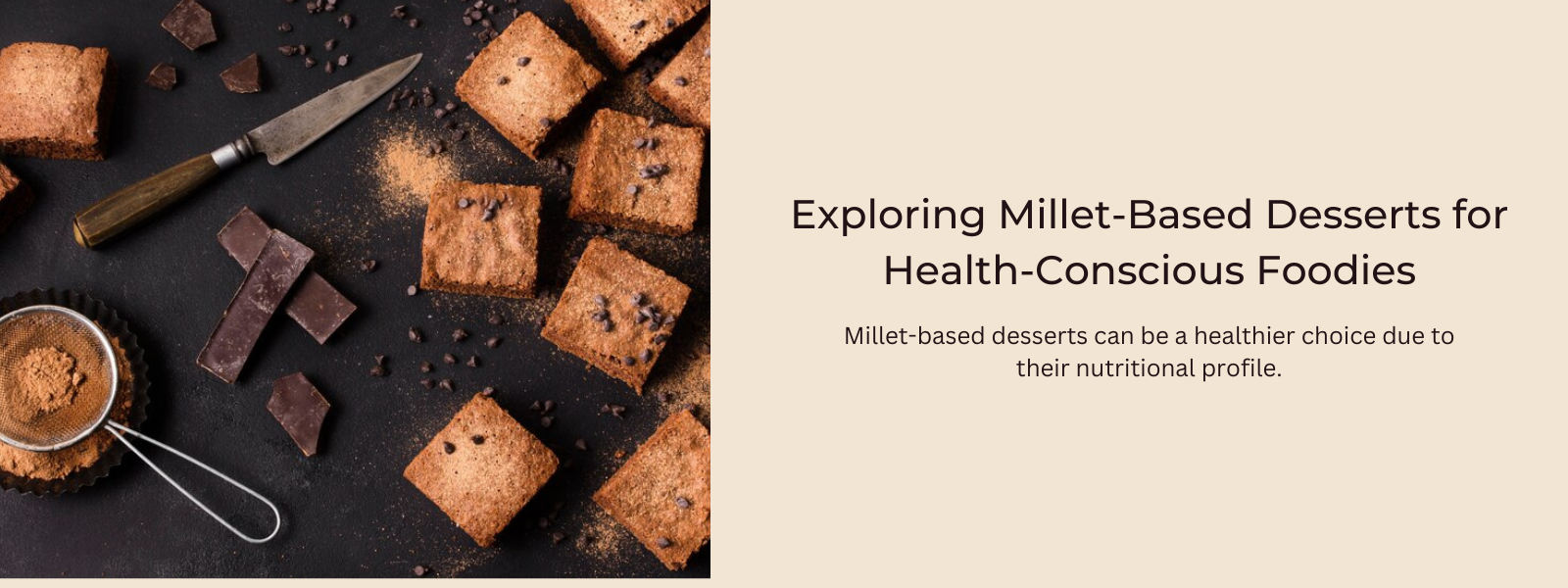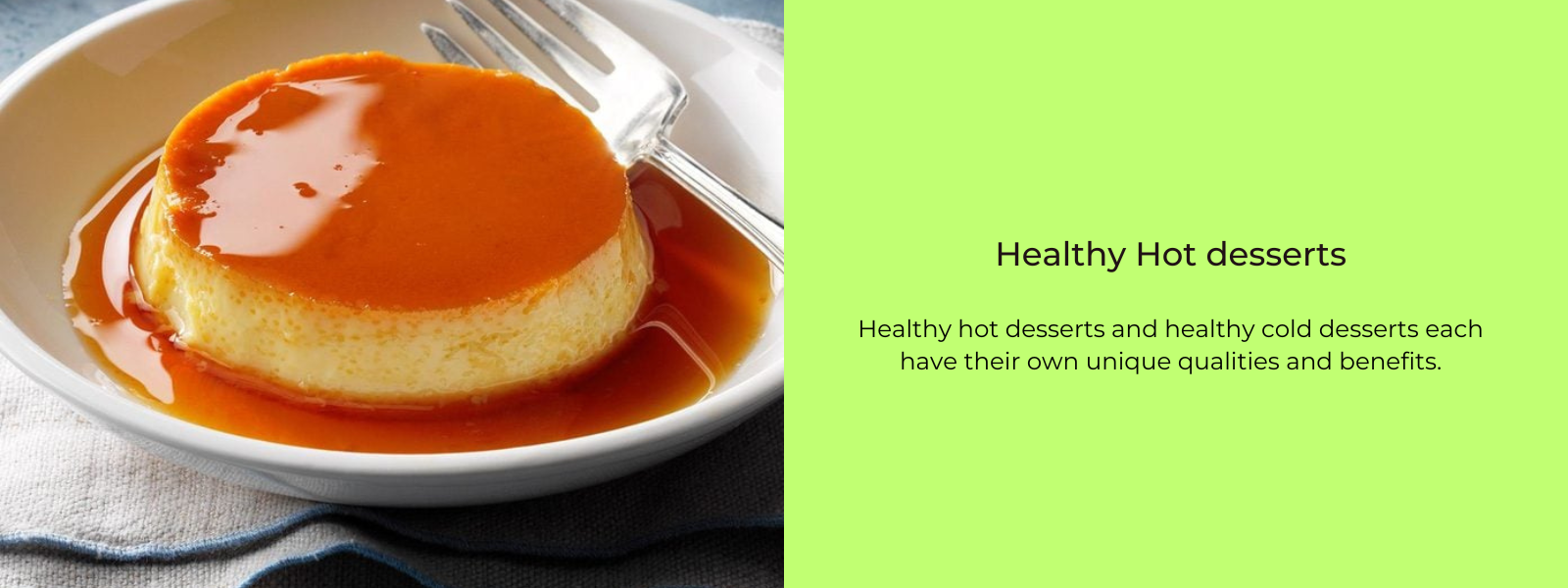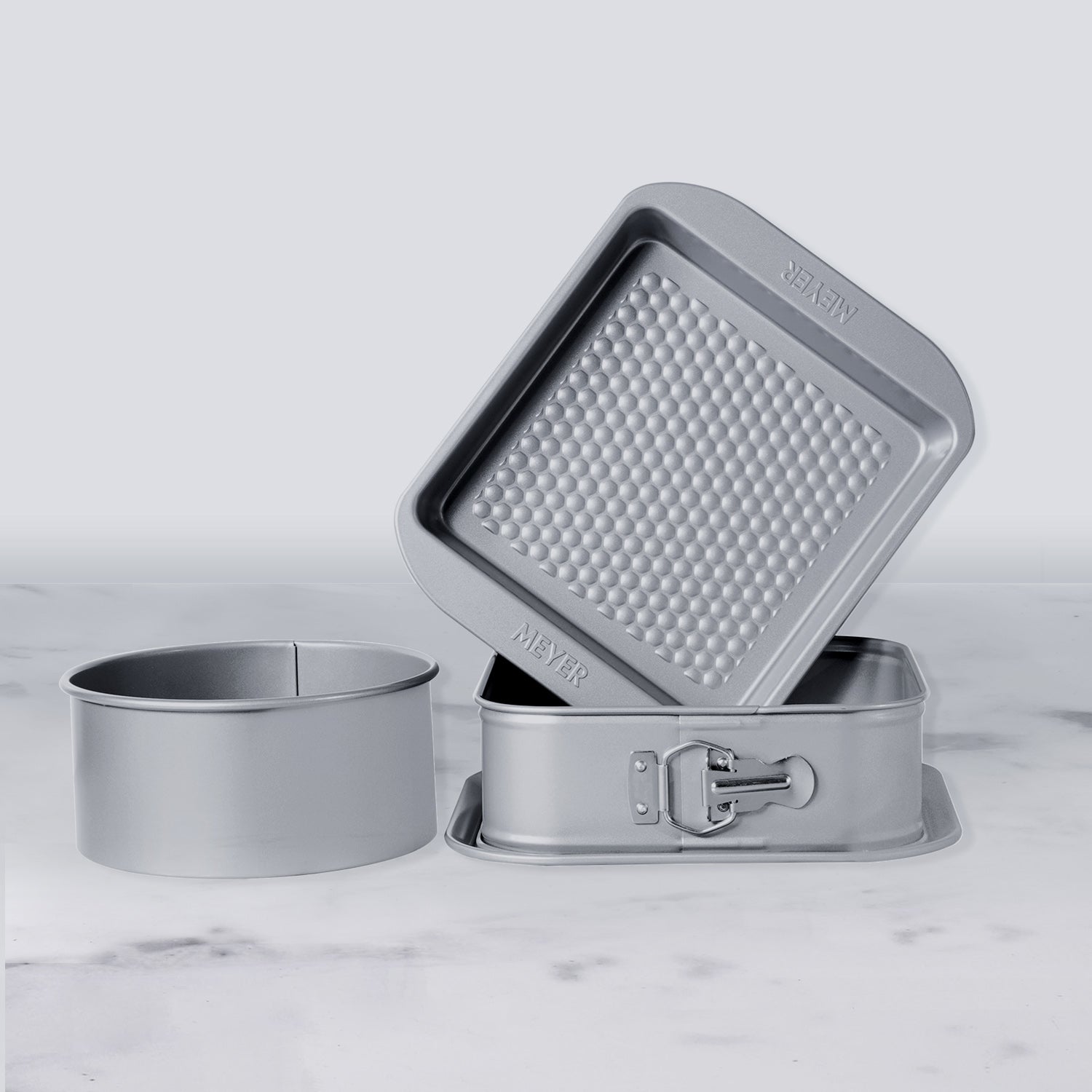Non-stick bakeware is a popular choice for its ease of use, low-maintenance cleanup, and ability to promote healthier cooking by reducing the need for excessive oil or butter. However, not all non-stick bakeware is created equal. Choosing the right one for healthy baking involves understanding materials, coatings, and safety considerations. Here’s a comprehensive guide to help you select non-stick bakeware that enhances your health-conscious baking journey.
Table of Contents
- 1. Prioritize Non-Toxic Coatings
- 2. Choose High-Quality Materials
- 3. Check for Even Heat Distribution
- 4. Select the Right Shapes and Sizes
- 5. Durability and Longevity
- 6. Choose Sustainable Options
- 7. Health Benefits of Non-Stick Bakeware
- 8. Introducing Meyer Non-Stick Bakeware
- 9. Care and Maintenance Tips
- 10. Conclusion
Prioritize Non-Toxic Coatings
The coating of non-stick bakeware plays a critical role in health and performance. Look for bakeware that ensures safety and avoids harmful chemicals:
- PFOA-Free and PTFE-Free: Always check labels for bakeware free from PFOA (Perfluorooctanoic Acid) and PTFE (commonly known as Teflon). These chemicals can release toxic fumes at high temperatures.
- Ceramic Coatings: Opt for bakeware with ceramic-based coatings that are naturally non-stick, free from harmful chemicals, and resistant to high temperatures.
Choose High-Quality Materials
The material of your bakeware affects heat distribution, durability, and safety. Here are some excellent choices:
- Carbon Steel: Known for even heat distribution and durability, carbon steel bakeware ensures consistent results and lasts longer than traditional options.
- Aluminum: Lightweight and affordable, aluminum offers good heat conductivity. Look for anodized aluminum, which is safer and more durable.
- Stainless Steel with Non-Stick Coating: Durable and chemical-free, stainless steel provides a sturdy base with the benefits of a non-stick surface.
Check for Even Heat Distribution
Uneven heat distribution can lead to undercooked or burnt spots, compromising both the taste and nutritional value of your baked goods. Choose bakeware with:
- Honeycomb or Textured Bases: Patterns like honeycomb designs enhance heat distribution, ensuring even browning and baking.
- Cold-Rolled Carbon Steel: This material retains heat better, providing consistent results with minimal effort.
Select the Right Shapes and Sizes
The design of your bakeware should align with your baking needs and ensure easy portion control:
- Loaf Pans: Perfect for breads or healthier cake recipes. Non-stick loaf pans make it easy to release baked goods without added fats.
- Muffin Tins: Ideal for portion-controlled snacks and breakfast items. Look for deep muffin pans for versatile baking.
- Baking Sheets: A must-have for cookies, roasted vegetables, or flatbreads. Textured non-stick sheets reduce sticking without needing oil.
Durability and Longevity
Investing in high-quality bakeware pays off in the long run. Ensure your bakeware is:
- Scratch-Resistant: Opt for non-stick coatings that can withstand regular use without peeling or chipping.
- Oven-Safe: Confirm the bakeware can handle high temperatures, especially if you bake items like pizzas or artisan bread.
- Dishwasher-Safe: While handwashing is gentler, dishwasher-safe options make cleanup easier.
Choose Sustainable Options
Eco-conscious bakers can opt for sustainable non-stick bakeware that aligns with healthy and environmentally friendly practices:
- Recycled Materials: Bakeware made from recycled aluminum or steel reduces environmental impact.
- Long-Lasting Designs: Durable bakeware reduces waste and ensures you won’t need frequent replacements.
Health Benefits of Non-Stick Bakeware
Non-stick bakeware offers several advantages for health-conscious baking:
- Reduced Fat Usage: The naturally slick surface eliminates the need for greasing pans with butter or oil, lowering calorie intake.
- Easy Food Release: Non-stick surfaces prevent baked goods from sticking, minimizing frustration and the temptation to add unnecessary fats.
- Healthier Ingredients: With reliable bakeware, you can experiment with low-fat, whole-grain, or sugar-free recipes without worrying about sticking issues.
Introducing Meyer Non-Stick Bakeware
Meyer’s non-stick bakeware range is perfect for health-conscious bakers looking for performance and safety:
- Highly Durable Carbon Steel: Retains heat efficiently for even baking and superior results.
- Honeycomb Pattern Bases: Ensure better browning, smooth food release, and hassle-free cleanup.
- PFOA-Free Coating: Prioritizes safety and avoids harmful chemicals, allowing you to bake with peace of mind.
Care and Maintenance Tips
Extend the life of your non-stick bakeware while maintaining its health benefits:
- Avoid Metal Utensils: Use silicone, wooden, or plastic utensils to prevent scratches.
- Handwash When Possible: Gentle handwashing preserves the non-stick coating longer than a dishwasher.
- Use Low to Medium Heat: High temperatures can damage non-stick coatings. Keep the temperature within the manufacturer’s guidelines.
Conclusion
Choosing the right non-stick bakeware is crucial for healthy and enjoyable baking. By prioritizing non-toxic coatings, high-quality materials, and durable designs, you can create delicious treats without compromising your health or the environment. Meyer’s innovative non-stick bakeware exemplifies the best in performance and safety, making it a worthy addition to any kitchen.
Bake smarter, healthier, and happier with the right non-stick bakeware—and enjoy guilt-free indulgence every time!











Leave a comment